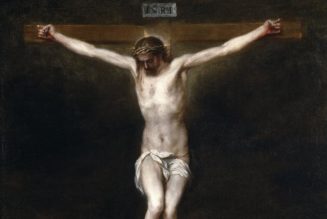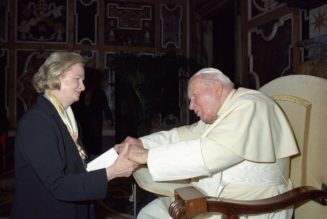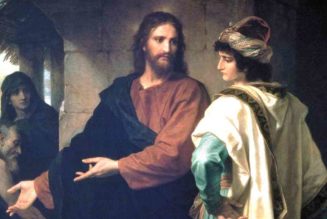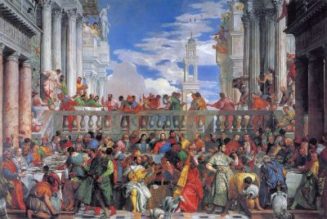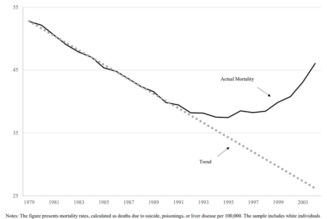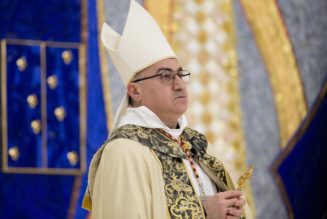
I want to be someone who matters. I want to make a difference, to do something great.
“I have my mission.” This is how St. John Henry Newman situates these desires, meditating on the “definite service,” the particular work that God has given to each of us. We might think of this kind of mission as something lofty, but it often entails the daily sacrifice and presence of others within our normal duties. We have our own unique role in God’s plan of salvation, which we do not devise for ourselves but must receive. Our identity is not something we create; it stems from a call to enter into the life of Christ, continuing to unfold his gift of himself in the world.
St. John Henry Newman
Newman further reflects on how our mission comes from God and is ordered to others: “I am created to do something or to be something for which no one else is created; . . . He has committed some work to me, which He has not committed to another. I have my mission – I never may know it in this life, but I shall be told it in the next. Somehow, I am necessary for His purposes, as necessary in my place as an Archangel in his – if, indeed, I fail, He can raise another, as He could make the stones children of Abraham. Yet I have a part in this great work; I am a link in a chain, a bond of connexion between persons.” As we fulfill this mission, we do something great for God and the ones we love by drawing others to him.
This passage from Newman’s Meditations and Devotions was a favorite of my late mentor, Dr. Don Briel. He would gift it to the graduates of the Catholic Studies Program he founded at the University of St. Thomas in St. Paul, Minnesota. After his diagnosis with leukemia, he offered his own advice to the many former students, such as myself, who came to visit him, unpacking “Newman’s vision of the fact that we have a work that is given to us, on which the plan of salvation depends. And he will say that God could give it to another, but, in fact, this is the deep implication in each of our lives that we have this great dignity. We’re meant for a purpose which we can’t fully grasp. So, if that’s true, then the main purpose in life is to be attentive, attentive to the working of grace that invites us to understand that work more deeply and participate in it more fully.” He clarifies that the mission is not simply “the work but a transformation of life, its purpose, not simply a work to be done.”
Our Mission
Our mission, given to us by God, constitutes our unique path of holiness. It includes our vocation, work and relationships, all shaped from within by prayer. Through our baptism, when we were born again of God, we received a share in Christ’s own mission. We often think of becoming great by leaving our mark upon this world, but real greatness, in a way that will last even after death, must come from outside of ourselves. Our mission lays before us a great cooperative venture, truly becoming who we are meant to be – led by Christ and following his path within our own story. The two become one the more we cooperate, allowing the Lord to shape our thoughts, desires and actions.
– Advertisement –
Our mission requires conformity to Christ, allowing him to live and act through us, transforming us and those around us from within. No matter the details, it intends to draw us into Christ’s gift of himself on the Cross, which, in turn, opens to us a transformed life in his Resurrection. The particularities of time and place differ, but the fundamental Christian vocation remains the same: to be Christ in the world. If we remain focused on the immediate demands of the day and self-focused desires, we may miss them or realize them only in part. Throughout our lives, God keeps calling us to listen, find peace, receive healing and act as his grace wells within us and overflows.
The First Christians and Their Mission
Our secular culture encourages us to think only of the clergy as driving the Church’s mission, but from the beginning of the Church, the laity embodied and spread the Kingdom of God. The first community sold its property, laying it at the apostles’ feet to give birth to the Church’s charitable mission. The faith spread throughout the Mediterranean primarily through the friendship and witness of ordinary Christians, who clearly had found something worth living and dying for in a spiritually anemic culture. In the Middle Ages, faith shaped daily life, with the laity forming confraternities to build bonds rooted in prayer and service, which formed the backbone of medieval economics and education. Faith shaped public life, and everyone had their role, which they unconsciously fulfilled, in offering God a sacrifice of praise through daily prayer, work, service and festivity.
The Christian in the World
Only in our day, when we are told by society to keep our faith to ourselves, has the Church found it necessary to remind us that every Christian is called to holiness and mission. Because secular culture attempts to keep the Church out of public life, the lay faithful now bear a heightened role in bringing faith into the world. The Second Vatican Council reiterated that all the faithful are called to holiness in Christ, taking up his mission in their own way: “Now the laity are called in a special way to make the Church present and operative in those places and circumstances where only through them can it become the salt of the earth. Thus, every layman, in virtue of the very gifts bestowed upon him, is simultaneously a witness and a living instrument of the mission of the Church itself” (Lumen Gentium, 33). In a world without Christ, we must become his presence there, acting as leaven in every corner of society.
Vatican II’s document on the laity, Apostolicam Actuositatem, unpacks the mission of the laity in more detail. The laity apply the Church’s mission of salvation and renewal in the world through the daily details of their lives. “Christ’s redemptive work, while essentially concerned with the salvation of men, includes also the renewal of the whole temporal order. Hence, the mission of the Church is not only to bring the message and grace of Christ to men but also to penetrate and perfect the temporal order with the spirit of the Gospel” (5). Rightly ordering the world already anticipates the completion of “the singular plan of God that He Himself intends to raise up the whole world again in Christ and to make it a new creation, initially on earth and completely on the last day” (5).
Your Role in God’s Plan
You have a unique role in this plan. Through you, God wants to serve your family members, co-workers, neighbors and fellow parishioners. You can touch them through your own gifts and presence to show them God’s love so that he, too, can become more present to them. We can have confidence in God through every hardship, knowing he has called and equipped us for our mission. As St. John Henry Newman reflected, “I will trust Him. Whatever, wherever I am, I can never be thrown away. . . . He does nothing in vain; . . . He knows what He is about.”

